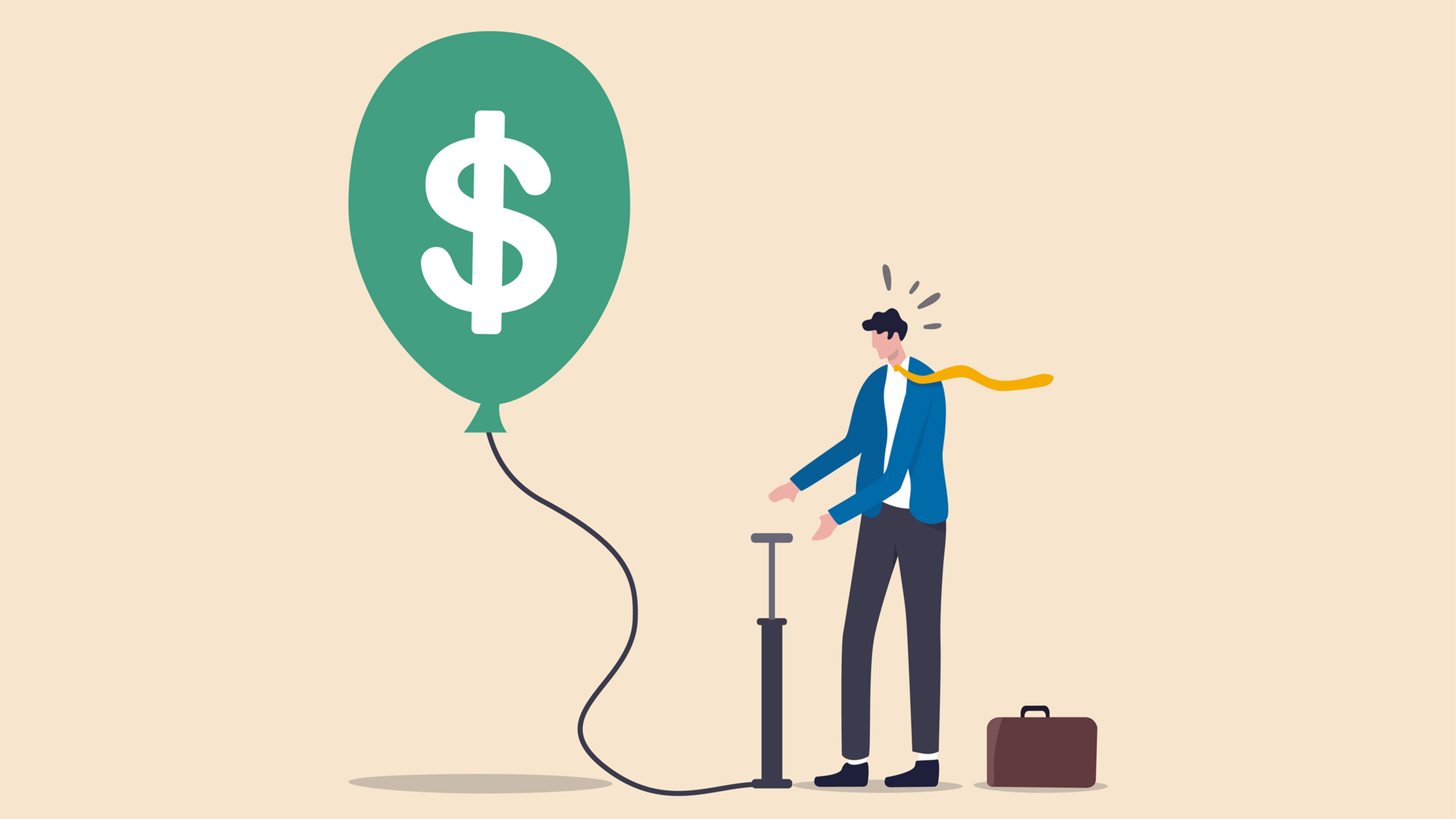What is a Market Bubble?
Even investing pros struggle to define what a market bubble actually is.


Profit and prosper with the best of Kiplinger's advice on investing, taxes, retirement, personal finance and much more. Delivered daily. Enter your email in the box and click Sign Me Up.
You are now subscribed
Your newsletter sign-up was successful
Want to add more newsletters?

Delivered daily
Kiplinger Today
Profit and prosper with the best of Kiplinger's advice on investing, taxes, retirement, personal finance and much more delivered daily. Smart money moves start here.

Sent five days a week
Kiplinger A Step Ahead
Get practical help to make better financial decisions in your everyday life, from spending to savings on top deals.

Delivered daily
Kiplinger Closing Bell
Get today's biggest financial and investing headlines delivered to your inbox every day the U.S. stock market is open.

Sent twice a week
Kiplinger Adviser Intel
Financial pros across the country share best practices and fresh tactics to preserve and grow your wealth.

Delivered weekly
Kiplinger Tax Tips
Trim your federal and state tax bills with practical tax-planning and tax-cutting strategies.

Sent twice a week
Kiplinger Retirement Tips
Your twice-a-week guide to planning and enjoying a financially secure and richly rewarding retirement

Sent bimonthly.
Kiplinger Adviser Angle
Insights for advisers, wealth managers and other financial professionals.

Sent twice a week
Kiplinger Investing Weekly
Your twice-a-week roundup of promising stocks, funds, companies and industries you should consider, ones you should avoid, and why.

Sent weekly for six weeks
Kiplinger Invest for Retirement
Your step-by-step six-part series on how to invest for retirement, from devising a successful strategy to exactly which investments to choose.
Even if you don’t pay a lot of attention to markets or investing, you’ve probably heard the term “market bubble”.
The global property bubble of the early 2000s led to the sub-prime crisis. The dotcom bubble of the late 1990s led to the dotcom bust. The South Sea Bubble of 1720 cost Sir Isaac Newton millions of pounds in today’s money.
But how exactly can we define a market bubble?
From just $107.88 $24.99 for Kiplinger Personal Finance
Become a smarter, better informed investor. Subscribe from just $107.88 $24.99, plus get up to 4 Special Issues

Sign up for Kiplinger’s Free Newsletters
Profit and prosper with the best of expert advice on investing, taxes, retirement, personal finance and more - straight to your e-mail.
Profit and prosper with the best of expert advice - straight to your e-mail.
Given that it’s probably one of the most famous terms in investing, it’s somewhat ironic that the correct answer to that question is “we can’t”.
There is no specific recognized definition of a market bubble.
This is partly because financial markets theory is built on models which assume that markets are rational. Most people know that this isn’t the case in practice, but it still makes it difficult to slot an emotionally-driven phenomenon like a bubble into existing theories.
However, it’s also because pinning a bubble down is hard.
Does a market bubble just mean a high valuation? Well, no, it’s more than that.
Technology stocks might look have looked expensive in recent years. But they have been positively tame compared to their valuations in the dotcom era. And US stocks have looked expensive on most valuation measures over the past decade. Yet there’s no sense of the wild optimism and “fear of missing out” that characterizes the most infamous bubbles.
If anything, it’s this sentiment aspect that separates a genuine bubble market from a merely expensive one. Every bubble starts with a good fundamental story – often related to technological change, or to a genuine supply shortage of the bubble asset.
As the asset rises in price, and the story becomes more widely known, there’s a sense of almost-manic desperation to get onboard. The price rockets, then rockets some more, as more and more investors are sucked in.
The investors and company insiders who got in early on see that the high prices are no longer justified by what’s happening on the ground. They start to sell even as more naive buyers keep coming along to add more fuel to the fire.
But eventually, there are no new buyers left to buy, and the bubble bursts. The latecomers lose the lot.
This leads us to the final aspect that makes bubble spotting so tricky – you can only know for sure that it was a bubble, after it has popped.
Our most recent example of a bubble may be in the cryptocurrency space. In November 2021, Bitcoin reached an all-time high price of $68,000, at the head of a crypto rally fueled perhaps by low interest rates and fear of missing out. Since that high water mark, all major cryptocurrencies have experienced dramatic price drops as financial conditions have tightened.
Bitcoin's price today sits at less than $17,000, having given up all gains since December 2020. Many other cryptocurrencies have fared even worse. This dramatic tumble in asset prices has created a financial contagion of widespread losses and total wipeouts among crypto owners, along with failures among crypto firms big and small. It certainly feels like a bubble has popped.
Stick with Kiplinger to learn how to invest with confidence - and avoid potentially costly scams.
Profit and prosper with the best of Kiplinger's advice on investing, taxes, retirement, personal finance and much more. Delivered daily. Enter your email in the box and click Sign Me Up.

Ben Demers manages digital content and engagement at Kiplinger, informing readers through a range of personal finance articles, e-newsletters, social media, syndicated content, and videos. He is passionate about helping people lead their best lives through sound financial behavior, particularly saving money at home and avoiding scams and identity theft. Ben graduated with an M.P.S. from Georgetown University and a B.A. from Vassar College. He joined Kiplinger in May 2017.
-
 Nasdaq Leads a Rocky Risk-On Rally: Stock Market Today
Nasdaq Leads a Rocky Risk-On Rally: Stock Market TodayAnother worrying bout of late-session weakness couldn't take down the main equity indexes on Wednesday.
-
 Quiz: Do You Know How to Avoid the "Medigap Trap?"
Quiz: Do You Know How to Avoid the "Medigap Trap?"Quiz Test your basic knowledge of the "Medigap Trap" in our quick quiz.
-
 5 Top Tax-Efficient Mutual Funds for Smarter Investing
5 Top Tax-Efficient Mutual Funds for Smarter InvestingMutual funds are many things, but "tax-friendly" usually isn't one of them. These are the exceptions.